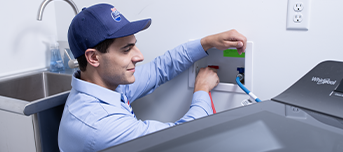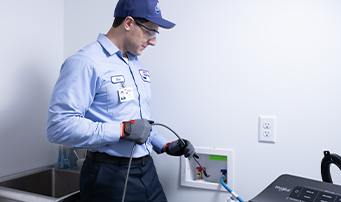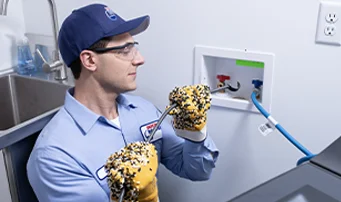When to Call a Plumber for Washing Machine Troubles
- Water pooling around the washer or tub
- Washer not draining after cycles
- Visible leaks from the hose or machine
- Noisy or malfunctioning spin cycles
- DIY fixes haven't resolved the drainage issue
Customer Reviews
Frequently Asked Questions
What do I do if my washing machine bubbles or overflows?
Turn off the machine and water supply immediately. Overflows are often caused by using too much detergent, a clogged drain, or a faulty inlet valve. Call a licensed plumber to diagnose and fix your laundry drainage issues before water damage occurs.
Is my washing machine hose broken?
If you've noticed water around or beneath your washing machine, you may have a leaking hose or a loose hose connection. Rubber washing machine hoses should be replaced every five years. Steel braided washing machine hoses will last upwards of seven to ten years. However, you should inspect your washing machine hoses often. Examine them for bulges and cracks.
If your washing machine hose needs replaced, watch this video for parts needed and steps to take.
What is the most common washing machine failure?
One of the most common failures is a broken drain pump or clogged drain line, which can cause water to back up. Other frequent issues include worn hoses, faulty door seals, and motor problems.
Is my washing machine hose broken?
Signs of a broken hose include visible cracks, bulging, leaking around the connection, or water pooling behind the machine. If you notice any of these, replace the hose immediately or call a plumber to prevent flooding.
Who do I call to repair a washing machine?
For leaks, drain issues, or hose problems, call a licensed plumber. For mechanical or electrical failures, contact a certified appliance repair technician. If you're unsure, a plumber can help diagnose the issue and refer you if needed.


